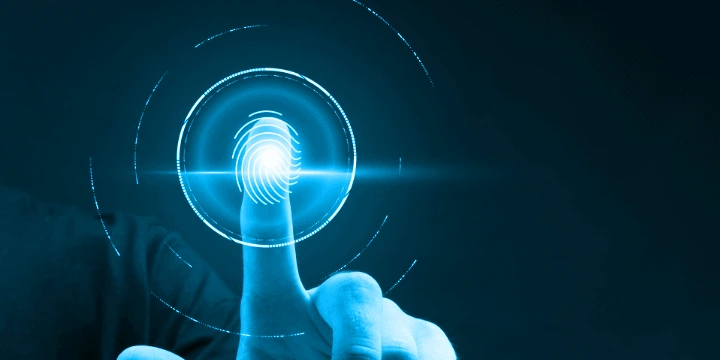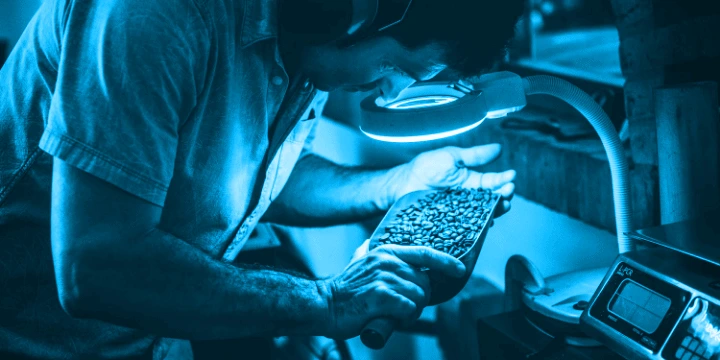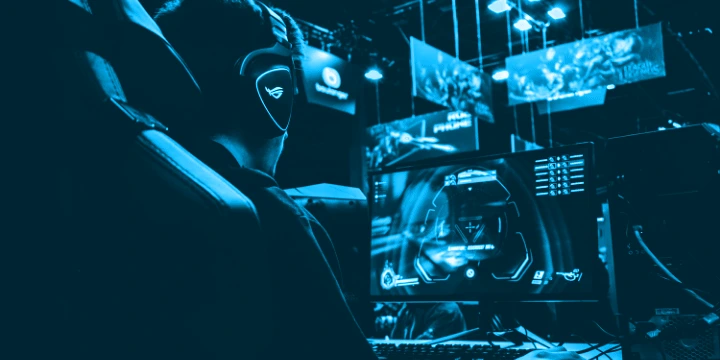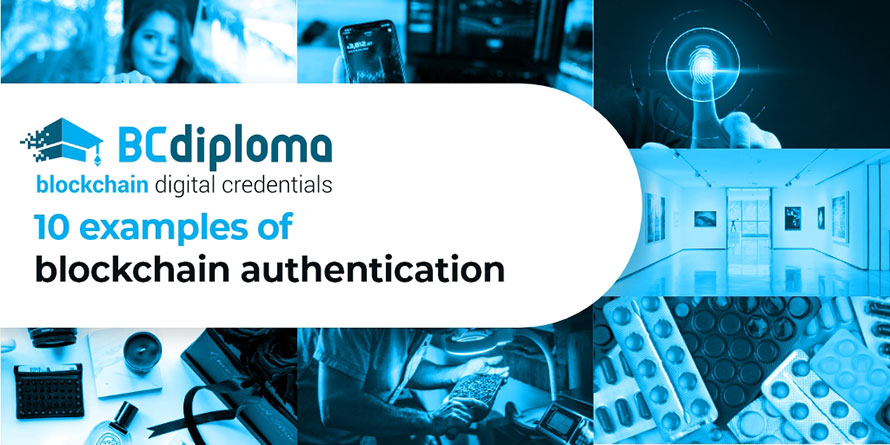In the last 20 years, online services have enabled individual users and organizations to perform different types of transactions such as banking, currency trading, etc. In these cases, the service provider has total control over user data. This is why in recent years, user data ownership and digital identity authentication have raised privacy and security concerns for end users who are increasingly valuing their information and personal information. A digital technology that has become very popular in recent years, blockchain is much more than a decentralized network for cryptocurrency transactions: it is a promising solution for verifying key digital information as well as identity authentication. Blockchain authentication offers a most secure way to verify the origin and accuracy of digital data stored in its chained blocks.
What is blockchain authentication ?
The rise of blockchain authentication is one of the most important changes in the way a person’s online identity is verified and secured. Indeed, the entire network based on blockchain technology is capable of having its own data integrity : there’s no need for a third party to monitor the network in a centralized way. Instead, a public blockchain ledger is used to guarantee data validity and security.
With blockchain authentication, the personal information used to verify someone’s identity is stored on the block’s hash, such as name or unique identity number. This decentralized approach will help achieve self-sovereign digital identity.
In such a blockchain authentication system, network users differentiate themselves using a private key. In this case, identity bearers are the sole owners of their private data. This way a user can verify their identity using a private key – a unique signature − and then grant access to a third party if needed, with full control over the information shared and for how long. Learn more about Blockchain GDPR.
Blockchain identity authentication also contributes to the hiring process and blockchain in education has also an importance. During the hiring process, a company can easily verify the background, credentials and diploma of a candidate and try the TOEIC certificate verification online. Learn more about blockchain credentials examples. This is but one example of the amazing potential of blockchain micro certification in terms of decentralized identity management.
Let’s take a closer look at 10 fields in which innovative companies use blockchain authentication:
1. Personal identity: user authentication and data protection

After fingerprints and biometrics, blockchain may become the next digital technology to authenticate the identity of Internet users without a login or password. Due to its properties and secure process, blockchain also allows the protection of personal data to comply with the GDPR.
Companies like Civic have already entered this market to authenticate users’ identity online and check their age without having to provide personal identification documents. Blockchain will soon be used by citizens for decentralized management of their personal identity data.
2. Financial transactions: improved financial security through blockchain

Although blockchain was created to carry out transactions with cryptocurrencies, it may disrupt the finance industry even further. Indeed, blockchain technology could be applied to all financial transactions conducted by banks, as the evidential value of blockchain is a guarantee of security for risky financial transactions.
Several financial institutions − namely the Santander bank and JP Morgan − are currently investing in blockchain technology to improve payment and transaction security.
3. Luxury: blockchain technology to guarantee the authenticity of items and their traceability to the second-hand market

In 2020, French customs seized around 800,000 counterfeit clothes, shoes and accessories. Counterfeiting is a real challenge for the image of luxury brands and the economy of countries that fall victims to it.
To authenticate luxury items, some companies in the industry, including LVMH, Richemont and Prada, joined forces to create the Aura blockchain in 2019. This system aims to authenticate luxury goods and ensure their traceability throughout their use, from sale to second hand, and allows customers to make luxury purchases in complete security.
4. Supply chain: Blockchain authentication for inventories

Blockchain also ensures the authenticity and unfalsifiability of an inventory of fixtures by means of photos taken with a smartphone. Blockchain certification for car or flat rental inventory of fixtures could well become a new security standard.
Start-up WeProov uses blockchain technology to authenticate inventories by taking a simple photo with a smartphone or tablet. It allows for a secure, forgery-proof inventory of fixtures with protected data traceability.
5. Food industry: using blockchain to monitor food’s origin and ensure its traceability

Blockchain is also revolutionizing the food industry by improving the traceability of food from the farm to the plate. It authenticates food origin for consumers who are now more concerned about the quality, origin and production conditions of what they eat.
For example, the company Connecting Foods uses blockchain technology to restore consumer confidence and works with several food companies to ensure the traceability of their food.
6. Video games: using NFTs to authenticate collectors’ purchases

NFTs (Non Fungible Tokens) are computer files stored on the blockchain that allow users to make unique digital purchases. This is the case, for example, with digital works of art, where the purchaser must be assured that they are unique, irreplaceable and unchangeable.
Video games also use blockchain technology to ensure players access to rare digital items and rewards. This is what the French start-up Sorare is using for its football game world: players buy certified authentic cards through blockchain.
7. Health: blockchain authentication for medicines

Did you know that the pharmaceutical industry is one of the most affected by counterfeiting in the world? Blockchain helps trace medicine supplies to fight against counterfeiting, which is a major issue for public health.
There are now several solutions on the market to improve the traceability and blockchain verification of medicines, such as BlockPharma in France, a blockchain specializing in the fight against counterfeit medicines.
8. Art: blockchain authentication and intellectual property

Other services offered by blockchain include protecting intellectual and artistic creations, and authenticating the anteriority of an artist’s work in the event of a dispute.
The company Ipocamp uses blockchain to help its clients protect their creations and defend their intellectual property rights.
9. Cybersecurity: governments are also turning to blockchain technology

When it comes to protecting citizens’ personal data or official state documents and authenticating changes, blockchain is one of the technologies most used by governments.
For example, Australia, Estonia and even the State of Colorado use blockchain to protect and authenticate every change in official data.
10. Diplomas: blockchain authentication and micro-credentials with BCdiploma

Do you know what micro-credentials are? BCdiploma is the specialist in blockchain authentication of official educational documents such as diplomas, certificates and other blockchain certifications, like for the Toeic certificate.
BCdiploma’s 100% blockchain diplomas and open badges are fully traceable, verifiable and tamper-proof. Students and recruiters alike can view them online with complete transparency. These are key solutions to end diploma fraud.
Would you like to learn more about BCdiploma and its digital credentials service ?
FAQ about blockchain authentication
What is blockchain authentication?
A decentralized blockchain system can verify its own data integrity, which means transactions can occur and a network can operate without the supervision of a third party. Instead, data validity and security of the system are ensured through an immutable and public blockchain ledger. This is the foundation of self-sovereign digital identity. In such a blockchain authentication system, the owners use a private key to differentiate themselves. Since each user is the only one in possession of their key, the entire network is more secure as a result. All users need to do is verify their identity using a private key, and then grant access or not to a third-party if they so wish.
Can blockchain be hacked?
The issue of security and trust has been fundamental for blockchain since it was first developed. The technology itself is very difficult to hack, and because blockchain is constantly being reviewed and transactions monitored by users, any attempt would be spotted immediately. Therefore, the true power of a decentralized blockchain-based system lies in its ability to address privacy concerns and guarantee the strongest security protocols.
What is a blockchain password?
Self-sovereign identities rely on blockchain technology to eliminate usernames and passwords. This is one of the many ways blockchain is revolutionizing digital credentials and identity authentication. Blockchain authentication protocol features security properties such as secure access management that will help remove the need for time-consuming and costly enterprise-wide password reset operations.
[title[Exploring Blockchain Authentication in Digital Identity & Security]] [description[The blockchain has many uses to assist in document authentication. Here is a top 10 list of blockchain-based authentication solutions.]]